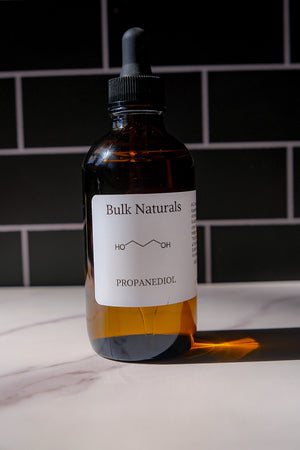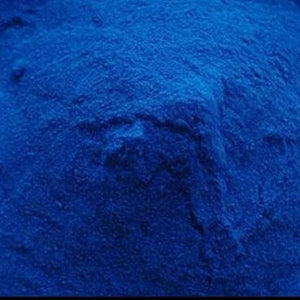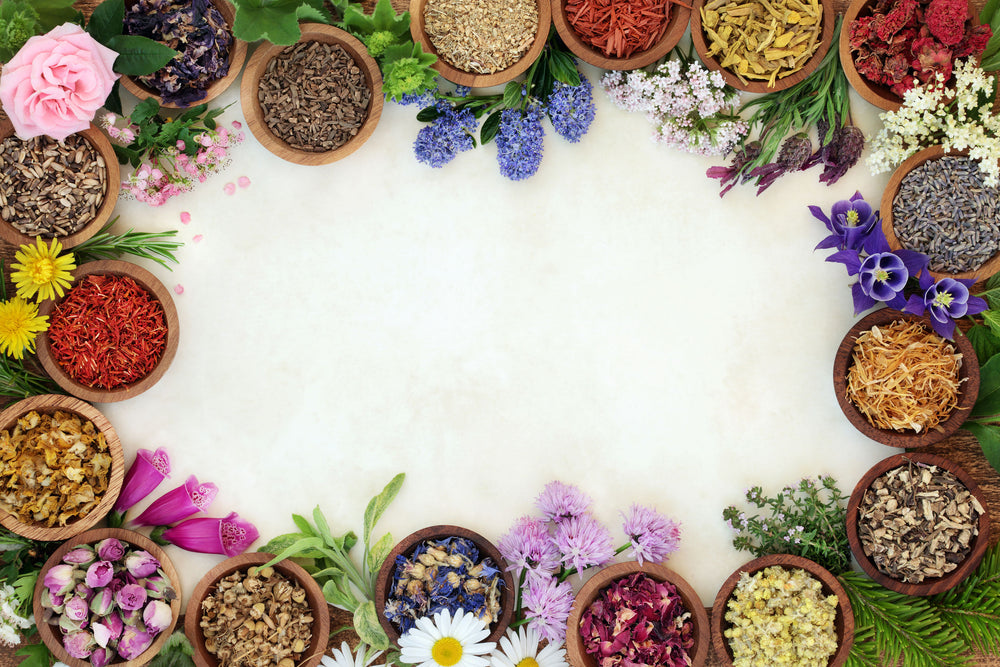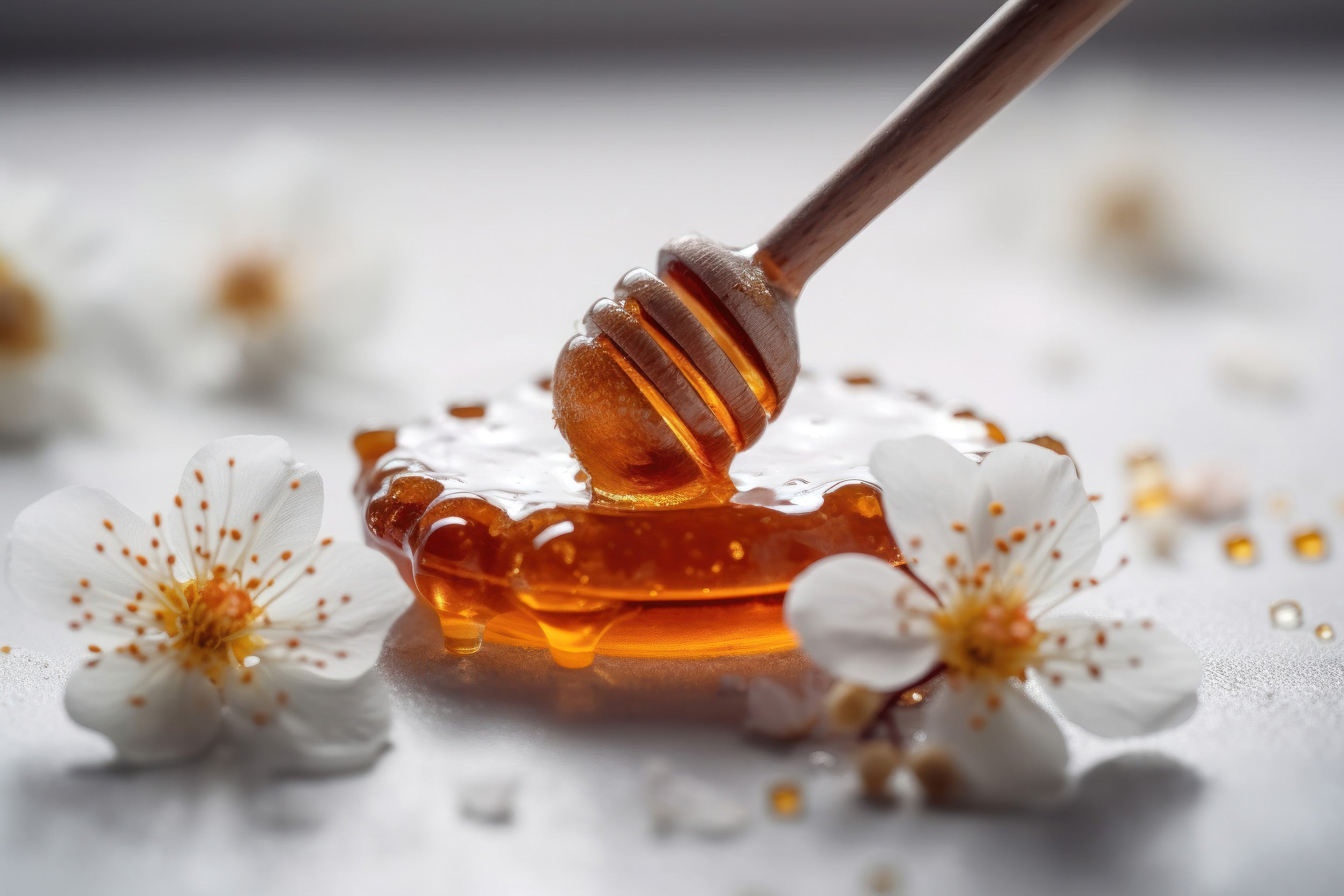Manuka honey has long been cherished in both traditional and modern wellness circles, but its real magic goes far beyond a soothing spoonful for sore throats. Sourced from the pristine landscapes of New Zealand and produced by bees pollinating the native Leptospermum scoparium (Manuka bush), this honey is a complex, potent natural ingredient that offers a wide array of benefits for skin health, immune support, and advanced natural formulations.
What Makes Manuka Honey So Special?
Unlike conventional honey made from a variety of floral sources, Manuka honey comes exclusively from the nectar of the Manuka bush (Leptospermum scoparium), native to New Zealand. This special plant and its nectar create honey with a distinct composition that sets it apart in terms of taste, texture, and, most importantly, its natural activity.
One of the defining features of Manuka honey is its naturally occurring antibacterial activity. This quality is attributed to specific compounds within the honey, primarily methylglyoxal (MGO). MGO is responsible for many of Manuka honey’s therapeutic benefits, supporting skin healing, soothing irritation, and promoting overall wellness.
The Unique Science Behind Its Potency
While methylglyoxal (MGO) is a key component responsible for much of Manuka honey’s antibacterial activity, the honey’s effectiveness is best understood through a broader measure known as non-peroxide activity (NPA). Unlike typical honeys, which rely primarily on hydrogen peroxide to fight bacteria, Manuka honey’s NPA reflects its unique antibacterial strength that remains effective even when exposed to heat, light, or enzymes.
Hydrogen peroxide-based antibacterial activity tends to break down quickly under environmental conditions, reducing the honey’s potency. In contrast, Manuka honey’s non-peroxide antibacterial action is stable and resilient, making it especially valuable for skincare, wound care, and wellness applications.
MGO levels provide a measurable indicator of one aspect of this antibacterial activity, but NPA gives a more complete picture of the honey’s true potency. Because NPA accounts for all antimicrobial compounds working together, it is often considered the more reliable benchmark for understanding Manuka honey’s effectiveness. However, Manuka honey is a living product — as it ages, both NPA and MGO levels can naturally fluctuate and evolve. That’s why the initial test is paired with an MGO forecast, helping you understand the honey’s potential as it matures without any added processing.
Together, these natural compounds don’t just inhibit bacterial growth—they also provide anti-inflammatory and antioxidant benefits, supporting skin healing and overall health. This combination makes Manuka honey a uniquely powerful ingredient cherished by formulators and natural wellness enthusiasts alike.
Why Formulators and Consumers Love Manuka Honey
The natural benefits of Manuka honey extend well beyond its antimicrobial activity. Here are some reasons why it’s beloved by skincare artisans, wellness advocates, and formulators alike:
- Moisturizing & Humectant: Manuka honey draws moisture to the skin, helping to maintain hydration and softness.
- Anti-inflammatory: It soothes redness and irritation, making it ideal for sensitive and problem-prone skin.
- Rich in Antioxidants: Protects skin from environmental stressors and supports overall skin health.
- Gentle and Skin-Friendly pH: Naturally acidic (pH 3.5–4.5), Manuka honey helps balance the skin’s environment.
- Versatile: Suitable for use in facial masks, balms, serums, wound care products, and even internal wellness formulations.
Formulation Ideas and Inspiration
Manuka honey’s texture, scent, and active benefits lend themselves beautifully to a variety of formulation categories. Here are some of the most popular ways to use it:
Skincare
- Honey-based cleansing balms
- Gel or clay masks with Manuka for acne or dry skin
- Overnight hydration masks
- Lip balms and targeted spot treatments
- Soothing post-sun or post-procedure gels
Hair & Scalp
- Scalp detox treatments for buildup or flakes
- Hydrating masks for dry, brittle hair
- Pre-shampoo nourishment for curls and textured hair
Wellness
- Herbal syrups and lozenges for seasonal support
- Gummies or powders blended with adaptogens
- Gut-soothing elixirs with ginger, turmeric, and honey
Because Manuka honey is shelf-stable and well-tolerated, it works well in both water- and oil-based formulations and doesn’t require excessive preservatives when used in smaller percentages (typically 1–10%).
Three Strengths to Match Your Needs
Bulk Naturals Wholesale offers three carefully selected strengths of raw, unfiltered Manuka honey, each suited for different uses and formulations:
- NPA 11.5+ – For daily wellness and general skincare
- NPA 15+ – For more intensive or targeted formulations
- NPA 20+ – For advanced or therapeutic-level products
This lets you formulate with confidence, knowing the activity has been measured, verified, and matched to performance expectations.
Incorporating Manuka Honey into Your Routine or Products
Whether you're crafting a soothing facial mask, a restorative balm, or a natural health tonic, Manuka honey’s moisturizing, anti-inflammatory, and antioxidant properties make it an invaluable addition.
Its stable antibacterial activity helps support skin healing and overall wellness — a testament to the ancient power of this extraordinary honey.
Ready to explore? Browse Bulk Naturals' selection of Raw Manuka Honey today and unlock the natural potency of this extraordinary ingredient.









Leave a comment